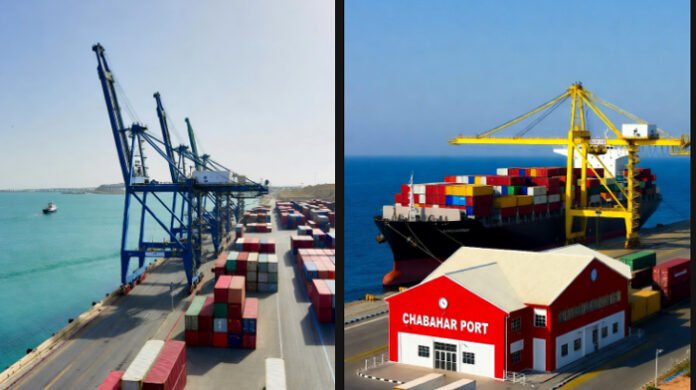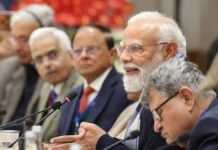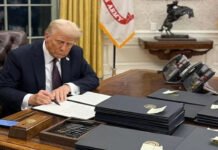the United States has granted India a six-month waiver from Iran-related sanctions to continue operating the Chabahar Port — a vital maritime hub connecting India with Afghanistan and Central Asia.
“This waiver reaffirms India’s strategic independence and commitment to regional connectivity,” said Ministry of External Affairs (MEA) spokesperson Randhir Jaiswal at a press briefing in New Delhi.
The Strategic Lifeline: Why Chabahar Matters
Located on Iran’s southeastern coast, Chabahar Port has long been India’s answer to Pakistan’s control over traditional trade routes to Afghanistan. Managed by India Ports Global Limited (IPGL), the port provides an alternative maritime and road corridor bypassing Pakistan, allowing Indian goods to reach Kabul and Central Asia directly.
“Chabahar is not just a port; it’s India’s gateway to Eurasia,” explained strategic affairs expert C. Raja Mohan.
The six-month waiver allows uninterrupted Indian investments in cargo handling, logistics infrastructure, and transport linkages — vital to sustaining regional projects like the International North-South Transport Corridor (INSTC).
Why the US Blinked
For Washington, the decision was pragmatic. Even as US sanctions remain on Tehran over its nuclear program, officials recognized Chabahar’s importance in stabilizing Afghanistan and countering China’s influence through Pakistan’s Gwadar Port, which is a key component of Beijing’s Belt and Road Initiative (BRI).
“The Chabahar exemption is in line with US support for regional development that benefits Afghanistan,” said a US State Department spokesperson.
India had lobbied strongly for the waiver, emphasizing that Chabahar operations are humanitarian and developmental rather than a violation of sanctions. Analysts note that the move reflects Washington’s evolving recognition of India’s role as a stabilizing democratic force in Asia.
India’s Balancing Act
India’s challenge has always been maintaining its partnerships with both Washington and Tehran — two countries often at odds. This waiver symbolizes that delicate diplomatic balance.
“India continues to walk a fine line, but it’s managing it with remarkable finesse,” said retired diplomat Anil Wadhwa.
Over the next six months, India plans to:
Expand cargo handling capacity from 8 million to 12 million tonnes.
Enhance rail connectivity from Chabahar to Zahedan in Iran, linking with the INSTC corridor.
Increase exports of food grains, fertilizers, and infrastructure materials to Afghanistan.
Already, India has invested over $100 million in port operations and committed another $250 million for future expansion.
China Angle: Gwadar vs Chabahar
Chabahar and Gwadar, located barely 170 km apart, symbolize the India-China rivalry for influence in the Indian Ocean region. While Gwadar is financed by China under the China-Pakistan Economic Corridor (CPEC), Chabahar is India’s strategic counterweight.
“The waiver helps India keep its foot firmly on the map of Indo-Pacific geopolitics,” remarked foreign policy analyst Manoj Joshi.
With this new US nod, India is expected to ramp up logistics, oil transport, and trade routes across Central Asia — especially to Kazakhstan, Uzbekistan, and Turkmenistan.
Geopolitical Implications
This development comes amid shifting power equations:
Russia’s growing involvement in the INSTC.
China’s deepening presence in Pakistan.
The West’s renewed focus on the Indo-Pacific region.
By securing the waiver, India not only strengthens its “Act West” policy but also showcases diplomatic agility in maintaining sovereignty while aligning with Western strategic interests.
“Few nations can manage ties with Washington, Moscow, and Tehran simultaneously — India just did,” noted Michael Kugelman, South Asia Institute director at the Wilson Center.
Future Outlook: Beyond the Waiver
India will push for a longer-term exemption during upcoming India-US strategic talks in early 2026. Officials hope to secure a multi-year clearance allowing broader investments in port modernization, ship repair facilities, and maritime security operations.
There are also discussions around linking Chabahar with India’s own Sagarmala initiative — integrating coastal infrastructure under one unified maritime vision.
The Bottom Line
The Chabahar waiver is more than a six-month reprieve — it’s a statement of India’s growing diplomatic weight in global power politics.
“Strategic autonomy isn’t declared, it’s demonstrated — and India just demonstrated it,” wrote an editorial in The Hindu.
As the world recalibrates after years of geopolitical turbulence, India’s success in keeping Chabahar operational marks a critical step toward realizing its dream of becoming a maritime power bridging the East and the West.
















